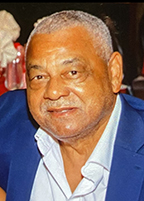
By Mitch Ceasar
It seems we are always in the middle of an “election year.” Maybe time is speeding up. But here in Florida, the center of the political universe, and the largest “swing” state in the country, we can’t escape the fact that all the elections truly matter.
Historically, Republicans or Democrats win or lose by 1%. That’s close. In 2018, Democratic nominee Andrew Gillum lost by only .3% and Senator Bill Nelson lost by only .1%. That is close. Any factor could have changed the result.
Voter suppression is one of those factors that can significantly impact election outcomes. Looking toward the presidential election, if voter suppression is to occur, it will likely include Florida, aimed disproportionately at people of color. These activities now tend to change results in close elections. The Brennan Center for Justice, a policy and law institute which deals with issues such as voter suppression, explained that this negative trend is growing.
Amendment 4, passed as a statewide amendment to the Florida Constitution, received 65% voter approval in Nov-ember 2018. Yet the Republican legislature is now busy at work to change the implementation, “interpreting our intent” after we voted. Their intent is to block more than a million potential voters from having their voting rights restored. The argument is that it was implicit in the original initiative that all fines, costs, and restitution must be repaid to qualify. Yet the Amendment, that we all voted on, has no language making this a qualifying requirement. Presumably, these attempted changes stem from a fear that such a new voting bloc will tend to vote Democratic. Many agree that completion of a criminal sentence, plus the completion of any probation or parole should meet the requirement of eligibility. Remember, serious crimes offenders are ineligible and thus no restoration of rights is possible.
The Brennan Center stated that if these roadblocks continue, more than one in three Afro-American men will be “essentially permanently disenfranchised” in Florida.
No election protection hotline can prevent this abuse. Voter suppression has historically been a method to stop or slow down someone’s ability to vote. The current fight over Amendment 4 is that, plus an additional element of twisting the will of the voters. People have voted and the legislature is attempting to interpret what the “language” meant after the fact.
Now it is in the Federal courts for clarification. The issue remains the payment of debt. The most recent Federal decision stated that economics cannot be a bar to a restoration of voting rights. However, that opinion was restricted just to the plaintiffs, not the other approximately 1.4 million Floridians. The most recent Federal ruling allows felons to register to vote immediately. However, until the Court clarifies all the lawsuits, voting will not occur at the levels it should. A bright note is a Federal Appeals Court ruling echoing that the right to vote cannot be withheld for economic reasons. This civil rights fight will continue.
The folks who are choosing not to recognize an individual’s rights to vote, and not honoring the will of Florida voters with Amendment 4, are litigating in the hope of “running out the clock”. That way the citizens who might be eligible to vote in 2020 will be in limbo, and further denied that right at least until after the 2020 election. Those with the right to vote will continue to be confused if they can vote or not, and as we know, voter confusion is voter suppression. Unless we continue to fight this suppression, this process will continue to drag out election to election. We must give voters their voice back.



Be the first to comment